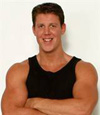Are Body Fat Scales Useless?
Posted by Joel Marion
Over the weekend I got a phone call from my friend Natalie.
She was a bit frustrated, and understandably so.
You see, about a week ago (per my recommendation) she purchased an electronic body fat scale to track her progress as she attempts to diet down for “beach season”.
Unfortunately, for the last week, the readings have been all over the place.
“One day it says I’m 26% and then the very next day somehow it reads 22%. Then back up to 24% the next day. It makes no sense.”
Perhaps you can relate.
Without a doubt, these scales can seem pretty worthless if you don’t really understand a) how they work, and b) how to use them to produce reliable, consistent data.
On the other hand, when you’ve got “A” and “B” down pat, body fat scales can be an invaluable tool to easily track body composition without having to bust out a pair of calipers or set up an appointment to have your body fat evaluated at your local gym (which has its own set of accuracy problems).
Today I’ll clear up the confusion and tomorrow you’ll actually be able to use the body fat function of your scale to produce some meaningful data.
First, let’s cover how they work:
Electronic body fat scales use a technology called bioelectrical impedance (BEI) to assess body fat.
With this method, a very light, unnoticeable electrical current is passed through the body and the percentage of the current that is repelled and the percentage “absorbed” or conducted are both measured.
The assumption is that body fat will repel the current while all lean tissue will act as a conductor, leaving the percentage repelled as your estimated body fat percentage.
Here’s the problem:
This method is highly dependant on consistent levels of body water, something that is not often consistent to say the least.
This is where both your and Natalie’s frustrations come in.
For example, if you just exercised or are dehydrated, the measurements will be off. If you have a different level of body water than when you last measured, the measurements will be off. If you take your body fat in the morning, and then again in the evening, the measurements will be off.
In other words, in order to get consistent readings, you have to be consistent in your measurement practices; this is what I recommend:
Body water is at it’s most stable point every day first thing in the morning before eating and drinking anything. This is when you should be taking your body fat readings.
Another recommendation is to only measure at most twice weekly. There are too many fluctuations that happen from one day to the next, and it’s flat out psychological torture to be stepping on the scale every day.
I do not allow my clients to get on the scale but once a week-period. And if they email me with concerns about scale weight being up from yesterday, I simply respond with “Give me an update on Saturday morning.”
Be consistent with your measuring practices and you’ll be surprised just how consistent your measurements become.
And lastly, always use multiple methods of tracking progress-scale weight, body fat %, and girth measurements are all part of the equation (with the most important of those being girth measurements; if clothes are getting loser and “problem” measurements are going down, you are undeniably getting leaner, regardless of what the scale says).
So how about you? Do you use a body fat scale? What other methods do you use to track progress?
At least 100 comments and I’ll be back before you know it with more VIP blog content!
Talk to you in the comments section,
Joel












 Hey, it’s Joel! So you want to know a little more about me, huh? Well, I’d be happy to oblige :-)
I guess it all started back in 2001 (my freshman year of college) when I was just a “skinny fat” 19-year old kid. At the time, I was spending close to 2 hours a day in the gym (now my workouts last about 30 minutes), and despite my efforts, you’d probably never guess I worked out a day in my life by looking at me...
Hey, it’s Joel! So you want to know a little more about me, huh? Well, I’d be happy to oblige :-)
I guess it all started back in 2001 (my freshman year of college) when I was just a “skinny fat” 19-year old kid. At the time, I was spending close to 2 hours a day in the gym (now my workouts last about 30 minutes), and despite my efforts, you’d probably never guess I worked out a day in my life by looking at me...